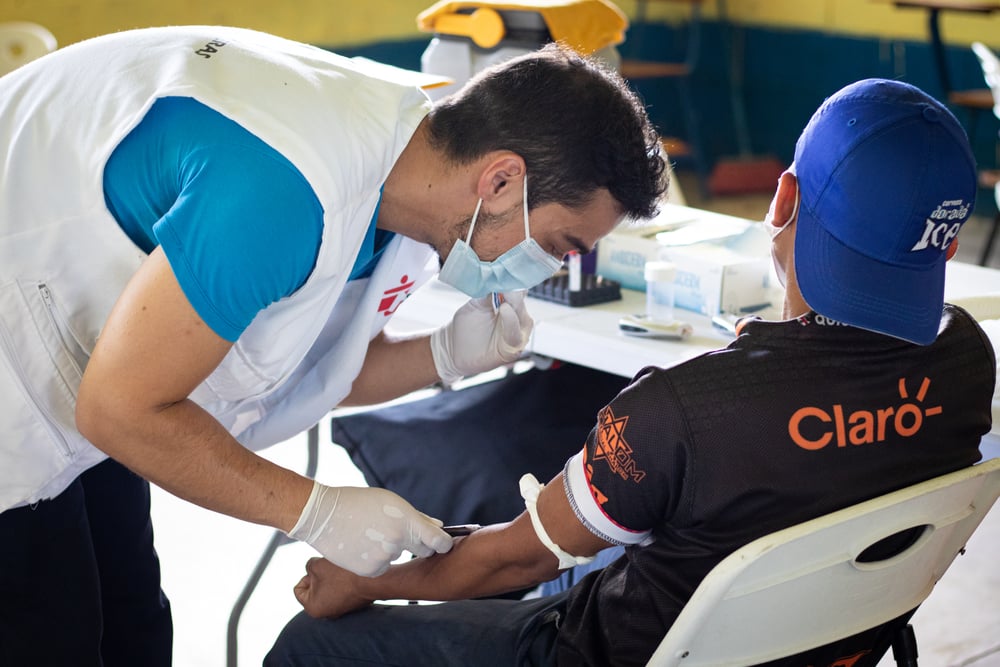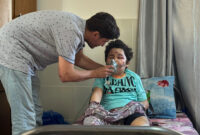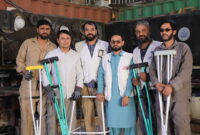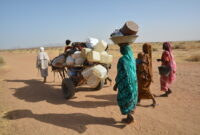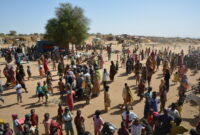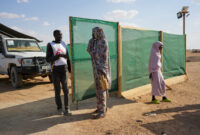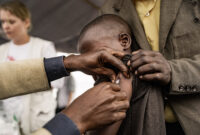Guatemala: MSF responding to chronic kidney disease
By Laura Panqueva Otálora, Head of Communications for Mexico and Central America.
Since August 2021, Doctors Without Borders/Médecins Sans Frontières (MSF) has been working in the department of Escuintla, to implement a comprehensive, simple, sustainable and reproducible care model that seeks to ensure timely diagnosis and management to reduce the morbidity associated with chronic kidney disease of non-traditional origin (CKDnt).
Three years ago, Salomón discovered he was seriously ill with kidney disease. This happened after he was bitten by a snake in a sugarcane field during the zafra – as the sugarcane harvest period is commonly known – in the municipality of La Gomera, Escuintla, where agricultural production occupies most of the territory. At 54 years of age, this man, who today has no home and lives next to a garbage dump, had to stop working because his health situation became more complicated. He was told he would never walk again.
“I promise you that I couldn’t move. I felt very weak and as soon as I stood up my knees buckled and I fell to the floor,” he says from a worn plastic chair. For months his companion, Blanca, took care of him. Salomón could no longer take care of himself and this caused him a lot of physical and psychological pain.
For his check-ups he had to travel long hours on a bus to Guatemala City. He and Blanca would leave the night before to keep the appointment the next morning. The strain wiped out his emotional health and his few economic resources.
“They even charge you for the bathroom there. If you take anything for breakfast, it costs you. Since I couldn’t work, we had to sell everything we had. The television, the radio. Everything. Now here we don’t even have a floor, we live on this small piece of land, which floods every time it rains and smells of accumulated garbage,” he says. Salomón now uses his skills to cuts firewood to earn a little money.
Several times Salomón tried to return to the sugarcane fields to work, but he was never hired. He worked as a gardener for a couple of months. He tried to get other jobs. He drove a truck and had to quit because of the severe pain caused by sitting for several hours. Salomón, as well as several of his acquaintances and relatives, was diagnosed with chronic kidney disease of non-traditional origin (CKDnt) in stage five, the most advanced stage according to international guidelines on renal pathology.
What is Mesoamerican endemic Nephropathy (MeN)?
The disease, also known as Mesoamerican endemic Nephropathy (MeN), is characterized by a progressive loss of kidney function, which affects the kidneys’ ability to perform vital functions such as eliminating wastes and concentrating urine. Over time, “it has become a regional epidemic of great socioeconomic impact and difficult for health authorities to manage. The disease is asymptomatic until advanced stages. In most of the countries where it occurs, there are no adequate renal replacement therapy facilities (including peritoneal dialysis, haemodialysis and renal transplantation) and thousands of workers have died in the last decades,” states the report of the second meeting on MeN, of the Central America Institute for studies on Toxic Substances (IRET-UNA).
According to medical anthropologist Frida Romero, this pathology “differs from chronic kidney disease (CKD) because it affects young men without a history of chronic diseases, who generally work in agricultural crops, in extreme physical conditions, with high temperatures, in impoverished environments”.
In March of this year, because of some of the health campaigns that MSF had started doing since August 2021 at the community level to raise awareness of this disease, Salomón decided to approach one of the teams.
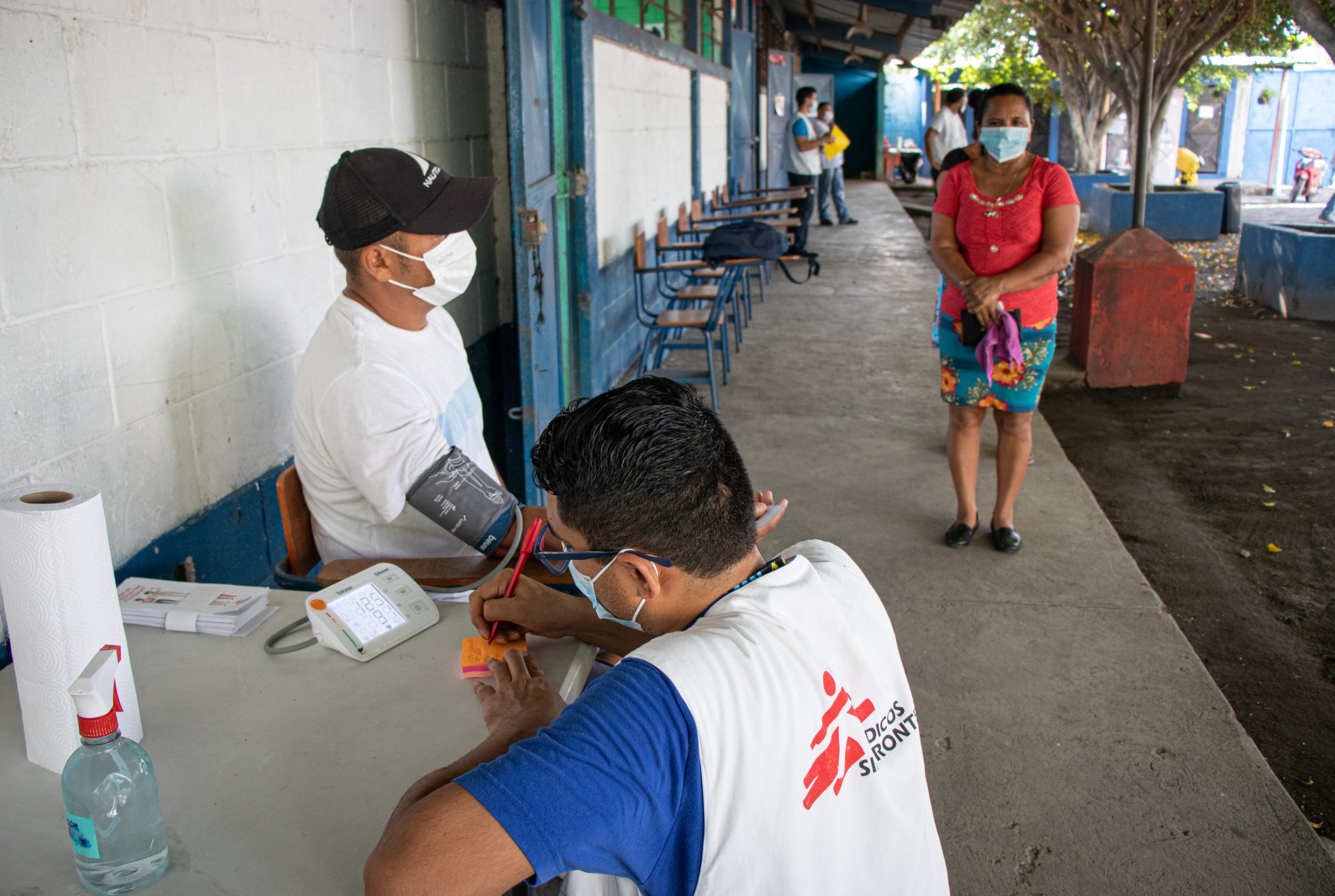
When Pablo Izeppi, one of the MSF psychologists, went to visit him at his home – a makeshift room, built with sheets and cans – he assessed his condition and has since provided him, along with the rest of the multidisciplinary team, with psycho-emotional support. “At that time,” says Izeppi, “he did not look well, neither physically nor emotionally. We referred him to the health center, did the screening tests and referred him to the National Center for Chronic Renal Disease (UNAERC, in Spanish) because of the seriousness of his stage. Salomón makes an effort to learn about his treatment alternatives and this has brought him short-term benefits. But the disease is progressing, and he has difficulty in accessing active treatment.”
Now, Salomón has a palliative care plan that allows him, in the short term, to improve his emotional and physical health. “We accompany him throughout his process: psychosocial, spiritual and medical. Our job is to support him in understanding what is happening to him. We explain him his options, and we are present to provide our services to him and his family while respecting his time and preferences in terms of care,” adds Mateo Cerro, nurse and patient support supervisor for the MSF project.
Barriers to healthcare access
According to the LA Dialysis and Transplant Registry, Guatemala has the highest number of kidney patients in Latin America. Every year, 162 new patients requiring dialysis or haemodialysis therapy are registered, and there are currently more than 9,000 patients undergoing renal function replacement treatment.
Escuintla, where Salomón lives, is one of the departments with the highest prevalence and incidence of chronic kidney disease (CKD) in Guatemala. According to the Ministry of Health, between 2008 and 2015, mortality increased 18 per cent and morbidity 75 per cent.
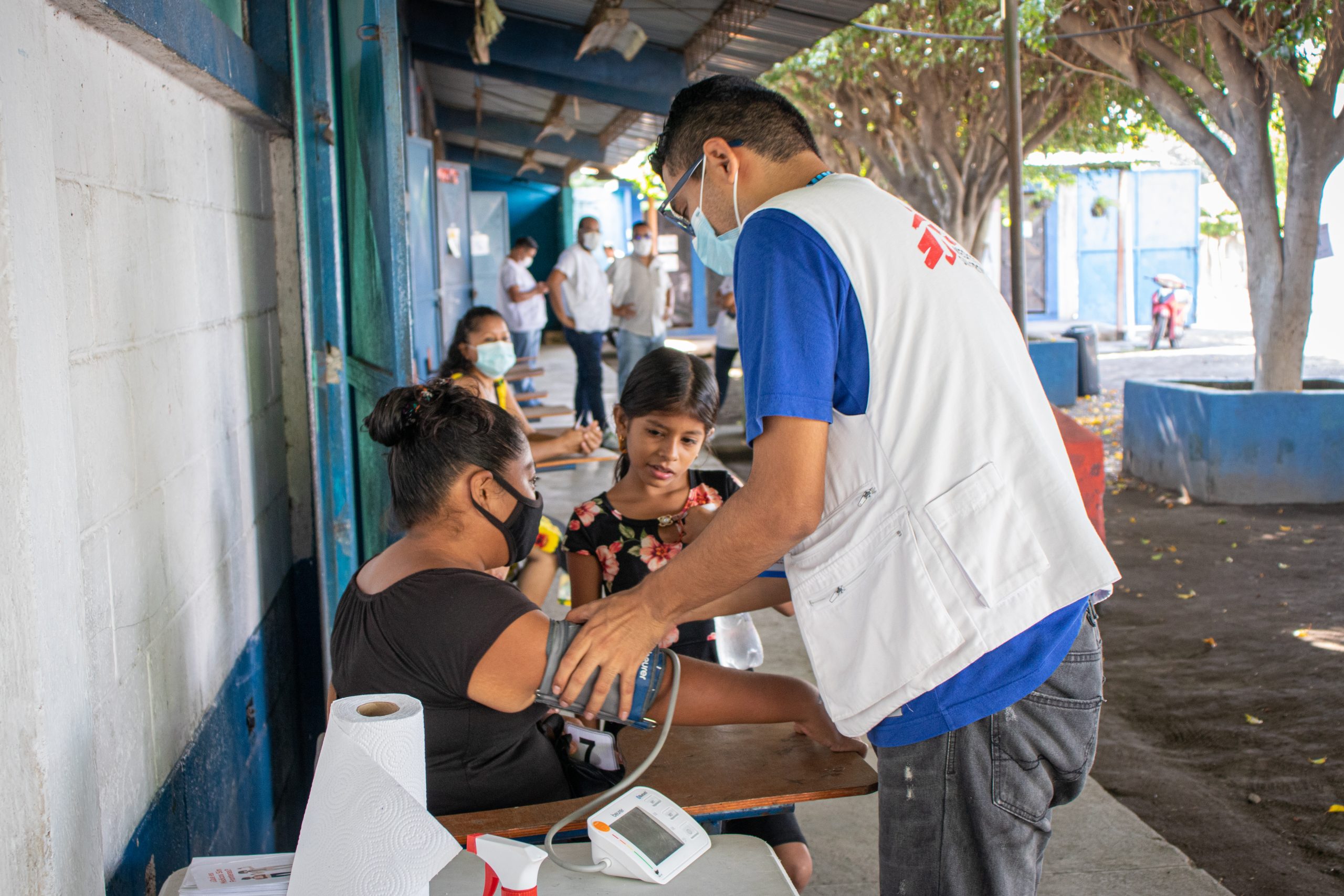
Because La Gomera does not have any specialized renal disease services or third-level care, the population must travel long distances. The trip to health institutions in the urban centers of the departments or in the capital of Guatemala can take several hours or even days. Some of these services are overcrowded, making prompt attention even more difficult. In addition, patients need to make additional trips to obtain the medications or tests requested by the team of specialists. All this represents a series of obstacles for people and many, like Salomón, end up exhausted due to the emotional and economic strain it causes them.
One year of working with the community
MSF established its activities in the department of Escuintla with the aim of developing a comprehensive, simple, sustainable and reproducible care model that guarantees timely diagnosis and management to reduce the morbidity associated with CKDnt. In August 2022, it will complete its first year of activities and has had to face several challenges as it is a multifactorial disease, which causes are not clearly known.
On the other hand, a multidisciplinary team has grown and strengthened to identify people suffering from this disease and support them according to their needs.
“Initially, we organized the medical, logistical, administrative and community teams in La Gomera, one of the three municipalities where MSF is active. The other two are La Democracia and Sipacate. In February, we signed an agreement with the Ministry of Health to begin its intervention in the communities in order to strengthen prevention, early diagnosis, treatment and surveillance of chronic kidney disease of non-traditional origin (CKDnt),” says Rodd Gerstenhaber, Country Director in Guatemala, Mexico and Honduras.
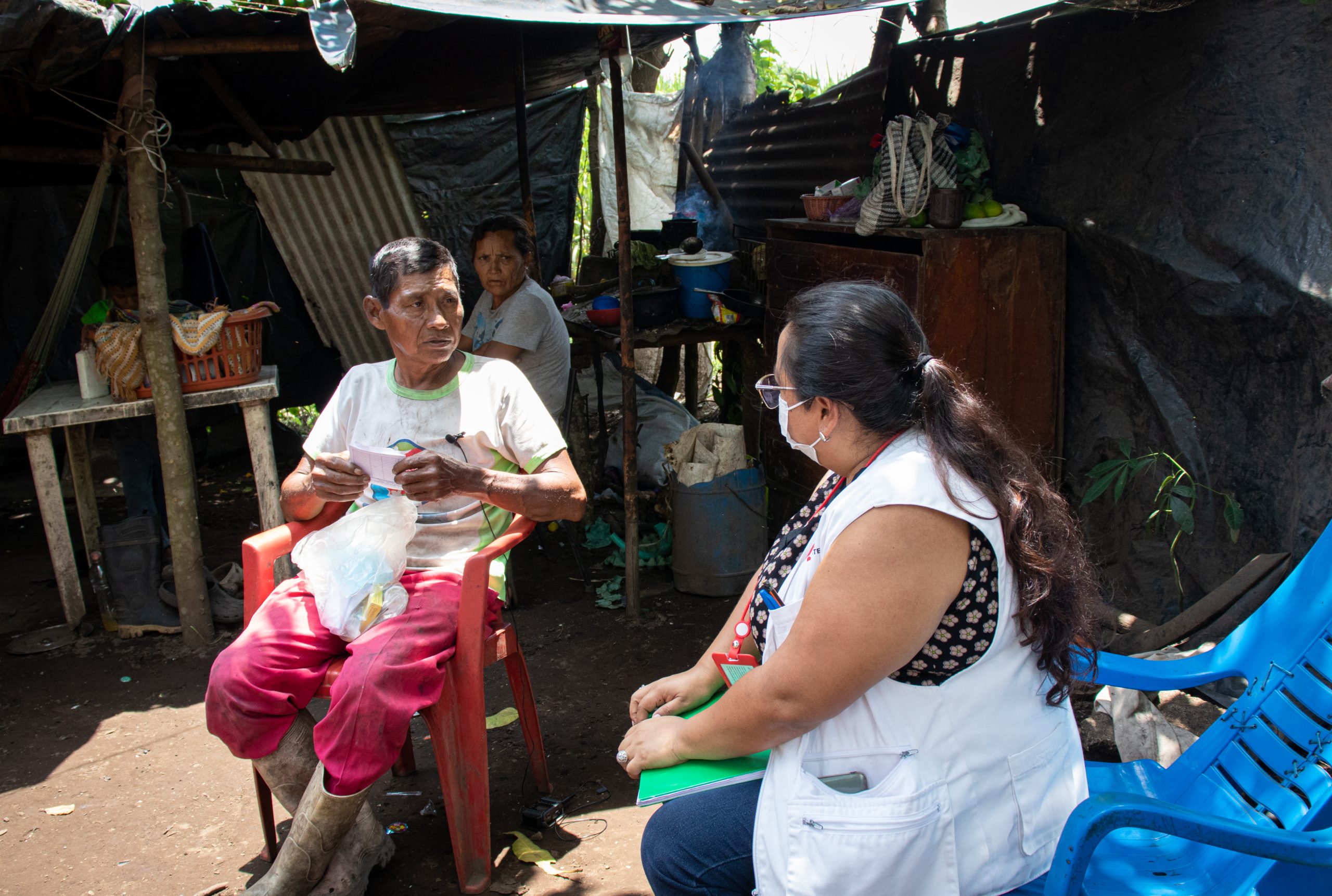
Among the achievements, Dr Benjamin Jeffs, the project’s medical referent, highlights having had access to local health centers to make diagnoses and collect data, as well as the strengthening of trust with the community. “In a way, we have saved some people’s lives. Now there seems to be more awareness of the disease. We have to get people to know that there is a problem.”
Knowing and diagnosing the disease
Oliver Sosa, MSF health promoter, recalls that at first, he counts the time to control the circuit that a person goes through to do their screening (rapid and laboratory tests). A team of ten people, including promoters and educators, are in charge of visiting the communities every week to invite them to attend the screenings and thus get people more involved in learning about the disease, how to prevent it and how to detect it.
At 8:30 a.m., the service starts with hand cleaning and an explanatory talk. Then, MSF team takes the weight and blood pressure of people before proceeding to the blood test. In a day MSF team can see between 40 and 60 people. Some of the tests are transferred to the laboratories and from there the medical team refers the stage 4 and 5 cases to National Center for Chronic Renal Disease.
Between August 2021 and June 2022, MSF carried out 2,376 screenings to detect the disease, reached 3,030 people in community activities and multidisciplinary follow-up is provided to more than 106 people who are in stages four and five of their disease, the most severe.
The populations MSF serves has shown a strong interest in their care. MSF is also working to strengthen the community’s capacity to identify signs of risk and the need for comprehensive medical care.
